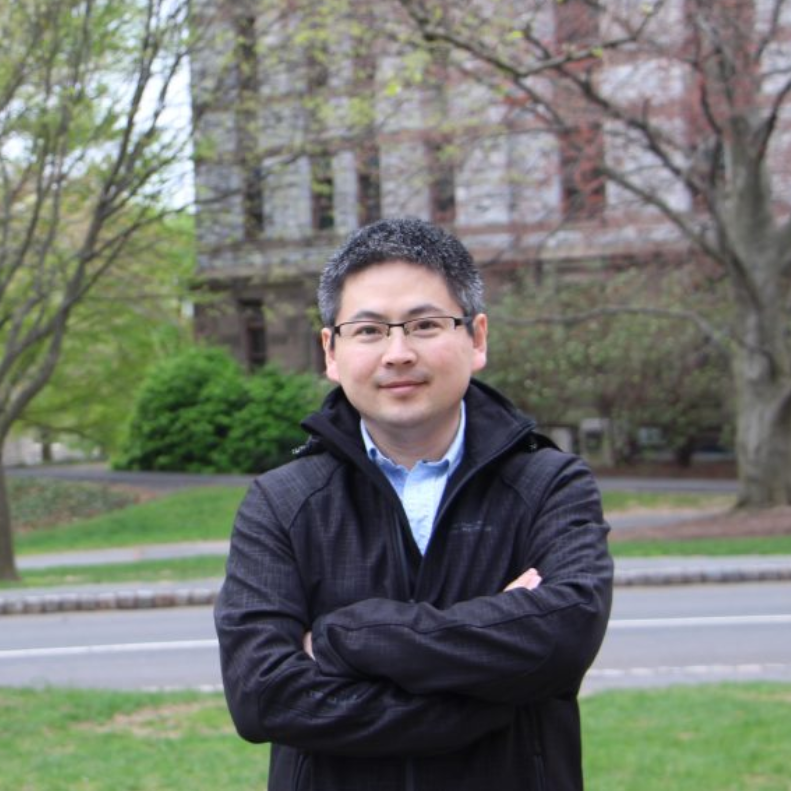Invited Speaker

Dr. Bing Wang
School of Mechanical Engineering & Automation, Fuzhou University, ChinaSpeech Title: Multiscale shear failure mechanisms of a bistable composite tape-spring
Abstract:
Aims: A bistable composite tape-spring (CTS) is stable in both the extended and coiled configurations. The factors governing its bistability have been well-understood, but there is limited research concerning the mechanics of structural failure. Since fibres are oriented in ±45˚, axial tension or compression of the CTS corresponds to its shear behaviour. Here, we investigate the multiscale shear failure mechanisms of the CTS.
Methods: We perform in-situ neutron diffraction on composite specimens using the ENGIN-X neutron diffractometer at Rutherford Appleton Laboratory (STFC, UK), and shear failure is characterised at both macroscopic and microscopic scales.
Results: There are clear observations of microstructural phase changes upon straining. The elastic and viscoelastic strain evolutions infer the shear failure mechanisms of the CTS, which is temperature-dependent. The premature failure of crystalline regions correlates well with the macroscopic shear failure. The load-bearing efficiency of the crystalline regions varies with temperature: crystalline regions carry 100% of loads at −180 °C since the molecules are ‘‘frozen’’, and have zero load capability at 165 °C as when approaching the melting temperature of the matrix.
Conclusions: Elastic and viscoelastic strain evolutions at different strain levels reveal the fundamentals of micromechanical shear failure, and their temperature dependency. Multiscale shear failure mechanisms are then proposed, which will benefit the optimisation of structural design to maintain structural integrity of CTS in aerospace applications.
Acknowledgements: We thank the financial support from Innovate UK (Grant No. 113077, RG82506), in close partnership with SAFRAN Landing Systems. The award of the ENGIN-X beamtime (RB1910213) from the Science and Technology Facilities Council (STFC), UK, is also acknowledged.
Biography: Bing Wang is a Professor at the School of Mechanical Engineering & Automation, Fuzhou University, and a Life Member of Clare Hall Cambridge, UK. He received his PhD at the University of Hull in Jan 2017, and then became a Research Associate/Fellow. He moved to the University of Cambridge as a Research Associate in bistable composite technologies from July 2017 to April 2020. Bing is an active peer reviewer for international journals, and has been recognised as an Outstanding Reviewer for Archives of Civil and Mechanical Engineering. He also serves as an Editorial Board Member for Sustainable Marine Structures (NASS), and a Guest Editor for Advances in Mechanical Engineering (AIME). His paper is featured in AIME, and his invited interview is published as an editorial. His research interests include composite structures, structural mechanics, non-destructive testing & evaluation, as well as finite element analysis.
